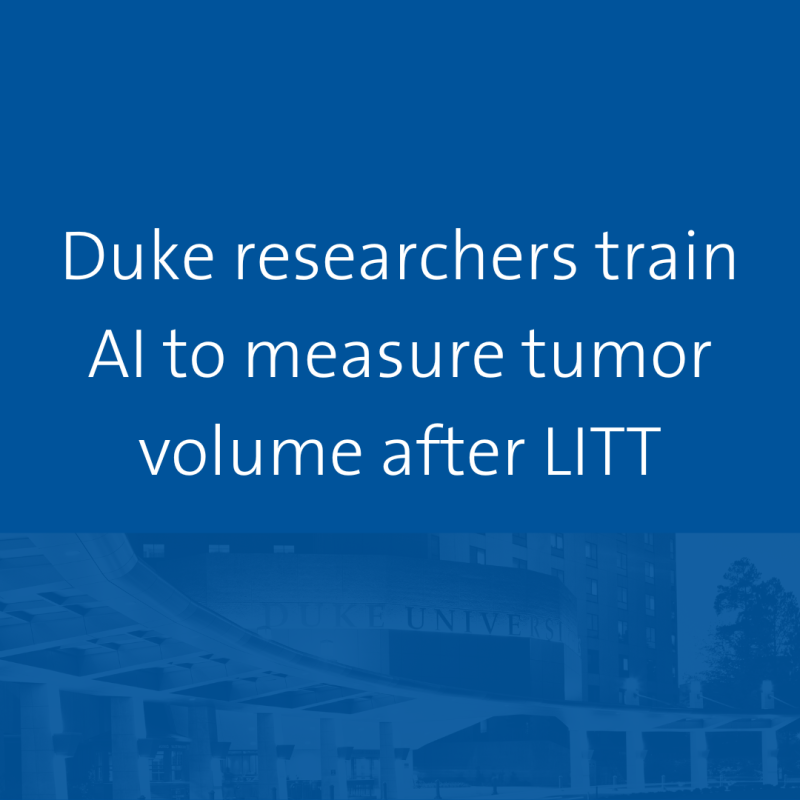
While laser interstitial thermal therapy (LITT) is increasingly used to treat brain tumors, it is sometimes associated with cerebral swelling and temporarily worsened symptoms.
Duke researchers used AI to track tumor volume over time, showing that expansion occurred at one to three months from LITT and resolved thereafter.
Measuring tumor size on MRIs is typically done manually by humans, a slow process. By training AI to do this measuring, researchers are able to speed up the process and make it more reliable.
The Study
Researchers analyzed 384 MRIs of 61 LITT-treated lesions and six control cases of medically-managed radiation necrosis. An AI segmentation model was trained to segment lesion volume of LITT-treated lesions.
Findings
Automated segmentation was accurate in measuring 95.6 percent of the studied images when reviewed by the team of researchers. Tumor volume increased to a median of 68.3 percent and resolved within six months of LITT. Overall survival for patients treated with LITT was 39.1 months, ranging from 9.2 to 93.4.
Based on AI measurements, twenty-one of 56 patients experienced tumor progression, for a progression-free survival for a median of 21.4 months (6 to 93.4 months). Patients who had volumetric progression had worse overall survival. (Researchers considered lesion expansion over 40 percent from the baseline to be volumetric progression.)
“Development of response assessment criteria for LITT-treated lesions is feasible and should be considered for clinical trials. Automated lesion segmentation could speed adoption of volumetric response criteria in clinical practice,” the authors wrote.
Source
Duke School of Medicine students Aden P. Haskell-Mendoza (first author), Ellery Hepburn Reason and Ariel T. Gonzalez; Joshua Jackson, MD, PhD, and Peter Fecci, MD, PhD, of Duke Neurosurgery; James E. Herndon II of Duke Biostatistics and Bioinformatics; and senior author Evan Calabrese, MD, PhD, of Duke Radiology, Division of Neuroradiology. Also contributing to the paper were Eric W. Sankey, MD, of Piedmont Athens Regional Medical Center Neurosurgery and Ethan S. Srinivasan, MD, of Johns Hopkins Neurosurgery.